In biomedical applications, one of the challenges is to make quantum dots biocompatible. The high added-value Quantum Dots synthesized by Attonculei are thermodynamically stable and have homogeneous dispersion, high radiative quantum efficiency, a very broad absorption spectrum, ultra-low levels of nonspecific links to biological compounds and, most importantly, stability in aqueous media. For this reason, our quantum dots are functionalized with biocompatible materials. Functionalization process enhances physical and chemical properties of quantum dots, and extends their usage lifetimes other than the biocompatibility. In this process, it is important to be able to make smooth covering at right thickness. Otherwise, the existent properties of these Quantum Dots will be damaged and the material produced will not be useful for nanobiotechnological quantum dots applications, which include :
• Real time detection of intracellular events, signaling, and bio-sensing,
• Tracking cell migration (e.g. stem cells),
• Drug delivery,
• Printable diagnostic devices,
• Printable drugs,
• Microscopy and multiplexed histology,
• Tissue mapping and demarcation (e.g. sentinel lymph node),
• Flow-cytometry,
• Photo and X-Ray dynamic therapy,
• In vivo whole animal and clinical imaging (e.g. angiography)
At the stage of Nanobiomedical applications, selection of biological functional groups to be constructed on functionalized Quantum Dots determines the kind of application, for example, core-shell semiconductor Quantum Dots conjugated with streptavidin for cell labeling. On the other hand, silica coated hafnium core/discrete shell quantum dots are very convenient for hyperthermia therapy and magnetic resonance imaging.
Regarding biological imaging, quantum dots provide researchers and clinicians with new and versatile approaches to a range of biomedical challenges. The resistance to photo-bleaching, narrow emission, high energy absorption, and single source excitation are strong reasons to make quantum dots superior fluorescence labeling agents as opposed to organic dyes. While traditional heavy metal-containing quantum dots such as CdSe, CdTe, PbS etc., have been explored, the advent of heavy metal-free ATTONUCLEI’s quantum dots opens up new horizon in the use of their unique spectral and colloidal properties for clinical applications, disease detection and therapeutics.
Actually, ATTONUCLEI has developed for the first time in the world specific high-end solutions based on functionalized custom quantum dots and colloids for the “human care” field. The scientific interest and industrial potential of Attonuclei functionalized custom Quantum Dots have been validated by our non-exclusive customer, Naos Group. After more than 40 years of existence, Naos is one of the major companies of the dermocosmetic industry in France thanks to its three brands Bioderma, Institut Esthederm, Etat Pur. The ambition of Naos is to create a technologic gap its brands with a common vision focused on innovation by using Attonuclei’s products.
NEW GENERATION COSMETICS BASED ON QUANTUM DOTS
The cosmetics’ field, and more specifically dermocosmetics, is facing new challenges related to the current trend of respecting both the ecobiology and the skin microbiome. Therefore new products have to contain less ingredients, which have to be biocompatible, biodegradable, etc, while maintaining the products’ efficacy. In order to answer these different challenges, ATTONUCLEI has developed several systems which are incorporated in cosmetics and dermocosmetics.
Antimicrobial biomolecule: ATTONUCLEI’s antimicrobial concept consists of a Quantum Dots biomolecule complex. Contrary to commercialy available preservatives, our product is based on a biomimetic system thanks to the use of a functionalized biomolecule. The vectorization of this biomolecule with a Quantum Dots is in fact the key to the antimicrobial properties of our product improving the stability and the availability of the biomolecule . Indeed our Quantum Dots biomolecule complex exhibits good infinite antimicrobial efficacy compared to the best seller commercial product, such as EDTA or CTAB.
This invisible antimicrobial biomolecule has been designed as a preservative especially for micellar water formulation.
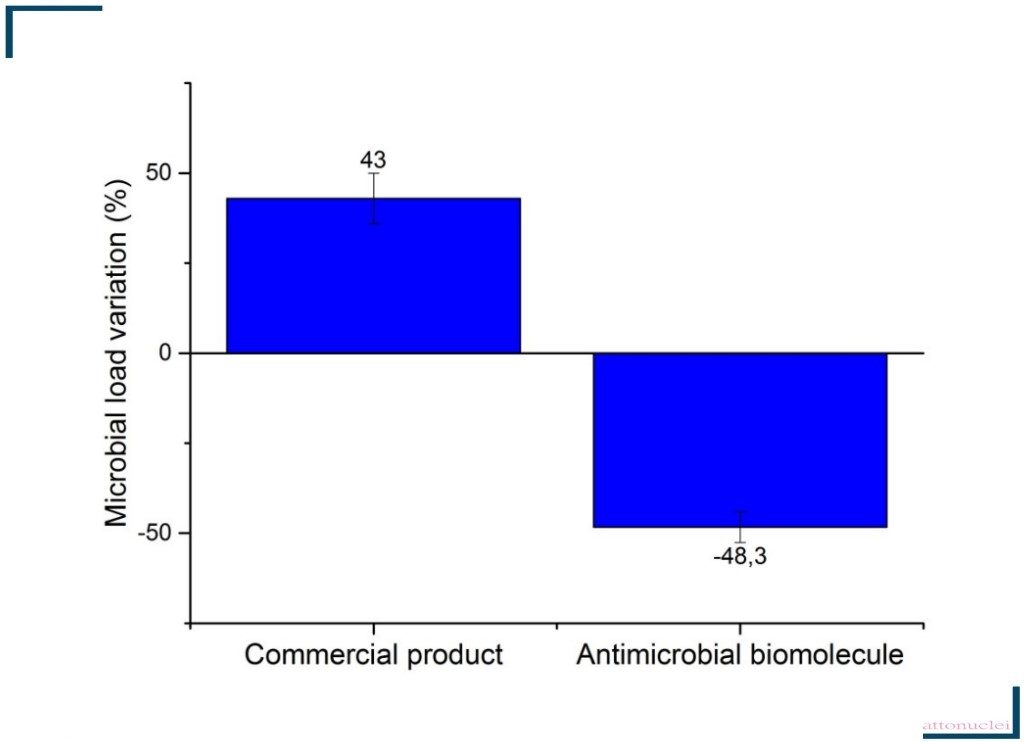
For this industrial product, we have filed a patent.
The Quantum Dot-biomolecule complex was combined to tocopherol in aqueous media to associate both antimicrobial and antioxidant properties in the same product. Indeed, for the first time ATTONUCLEI managed to isolate and stabilize tocopherol in an hydrophylic environment for sustainable activity and delivery.
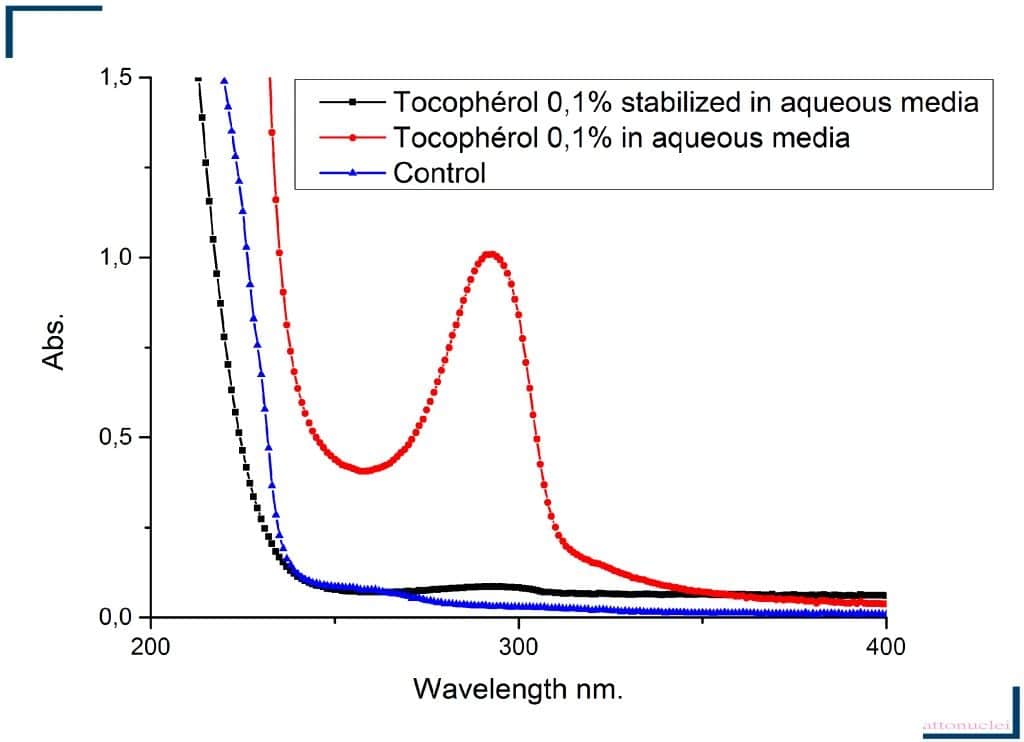
For this industrial product, we have filed a patent.
Autoregenerated antioxidant: current antioxidants tend to spontaneously oxidize thus loosing their antioxidant activity after the first use. The covalently vectorized antioxidant on a quantum dots surface would lead to a rapid and perpetual exchange of radicals allowing an almost infinite regeneration of the antioxidant. This biomimetic process is similar to the one employed by enzymes such as superoxide dismutase (SOD) thereby called SOD-like activity. Issued by ATTONUCLEI’s R&D laboratory, our antioxidant complex has been developed to allow their self-regeneration and maintain their activity in daylight.
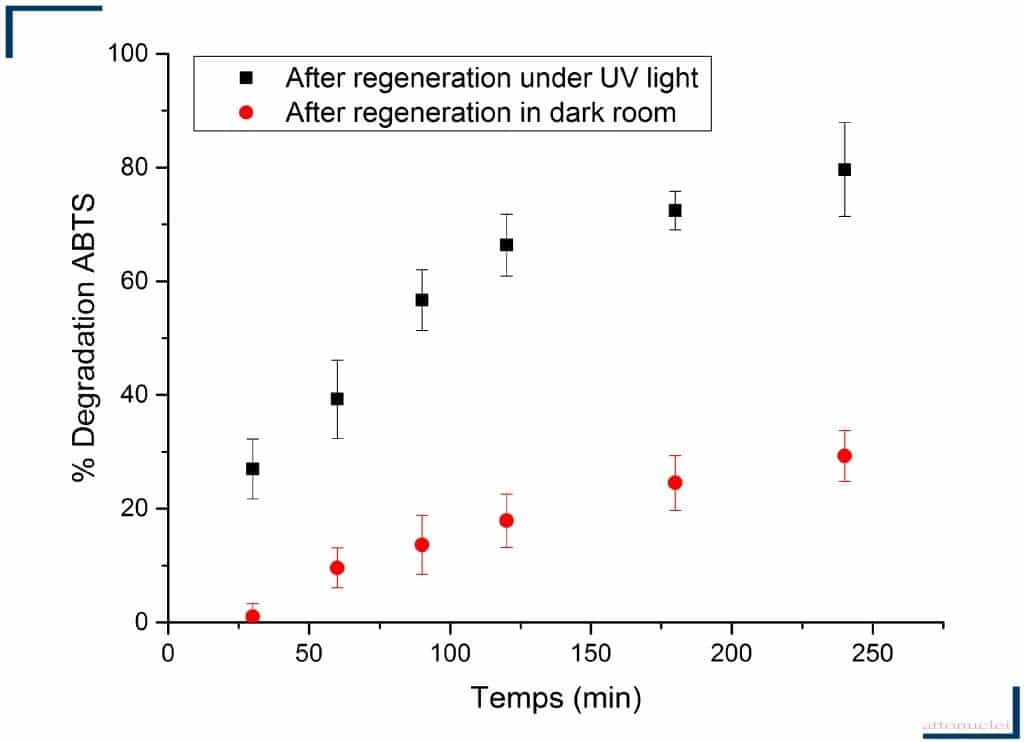
For this industrial product, we have filed a patent.
A study using spin traps coupled to electron paramagnetic resonance spectroscopy was carried out at “Institut de chimie radicalaire” of Marseille (France). This analysis shows that our product has never seen superoxide radical trapping properties compared to world famous anti-aging cosmetics from Clinique or Clarins.
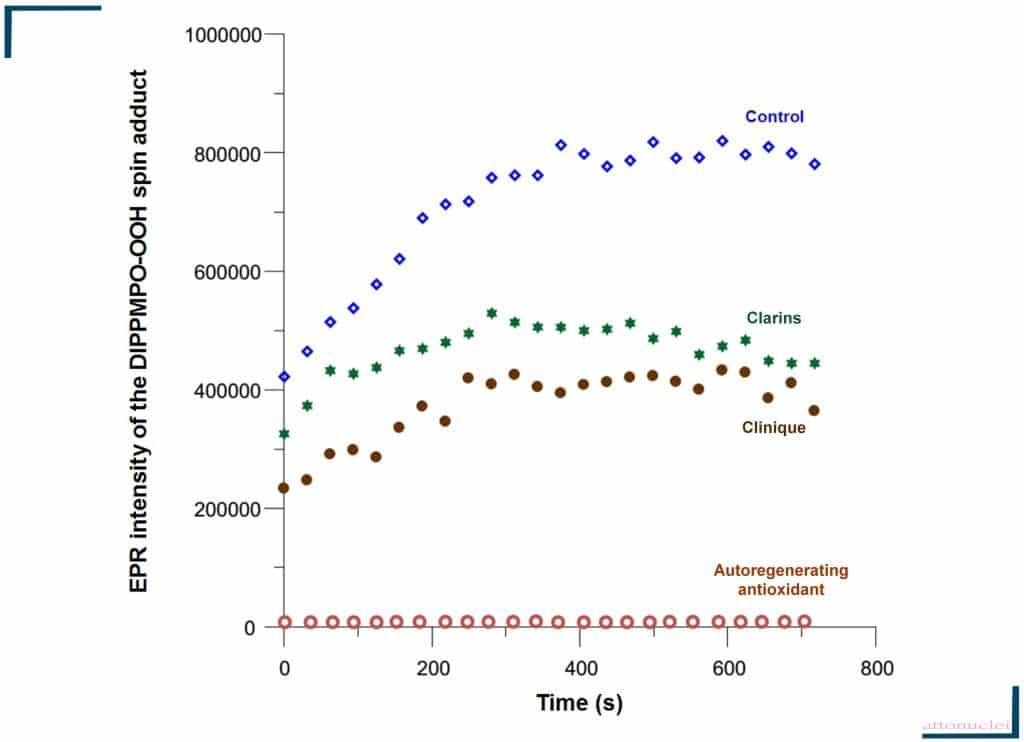
compared to commercial anti-aging products
For this industrial product, we have filed a patent.
Bioadhesive anti-pollution complex: Issued by ATTONUCLEI’s R&D laboratory, we have developed colloids, functionalized with bioadhesive polymers, capable of degrading pollutants emitted by industries, air or car traffic, pesticides, etc. Indeed the functionalized Quantum Dots used in this project have specific properties related to their semiconductor nature. In fact they have close-loop photocatalytic properties allowing them to degrade pollutants. The colloids have been functionalized with bioadhesive polymers thereby enabling the control of the photocatalytic reaction to limit the number of free radicals produced.
The bioadhesive complex has been combined to the autoregenerating antioxidant in a new generation antipollution product.
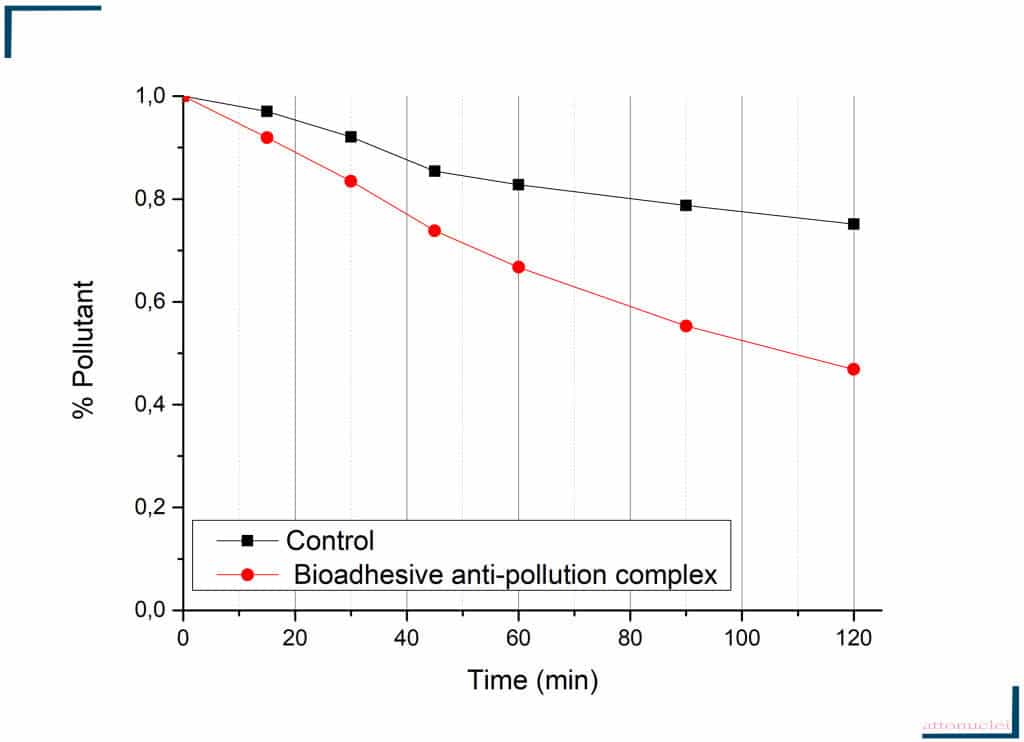
For this industrial product, we have filed a patent.
Photonic-barrier: Issued by ATTONUCLEI’s R&D laboratory, we have developed mineral colloids for full broad band sunscreens, allowing for the first time the best protection (1) compared to currently used mineral UV filters, such as the two competing products tested exhibiting photocatalytic activity (2) and light quenching (3) respectively.
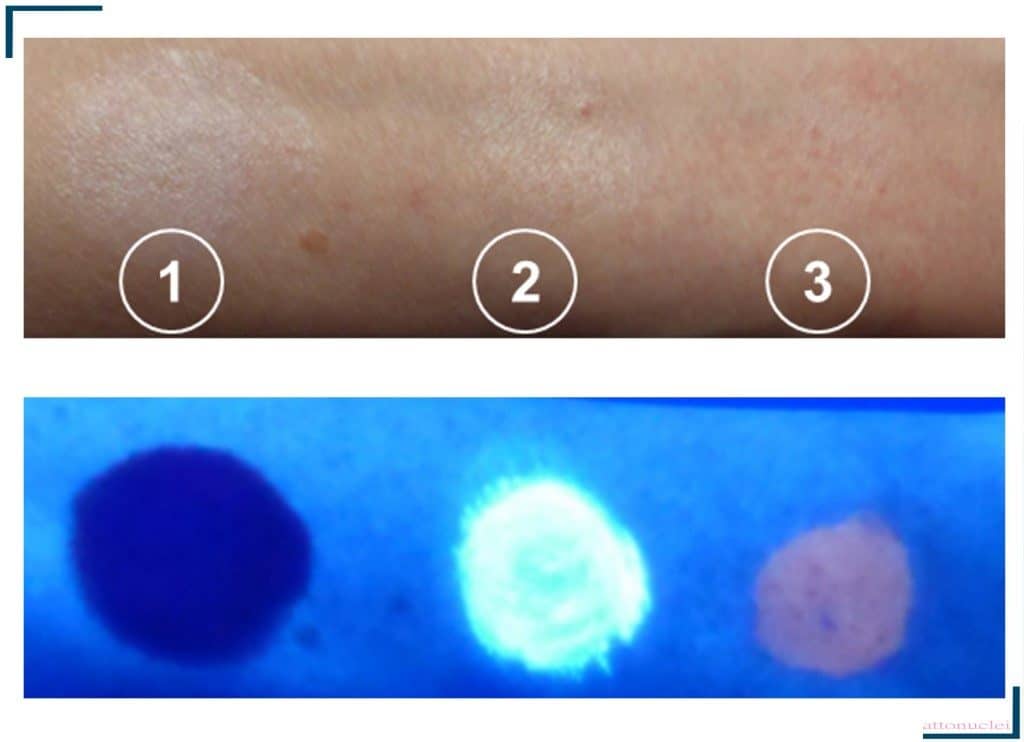
For this industrial product, we have filed a patent.
Due to their crystalline structure, these colloids have a higher efficiency than traditional organic and mineral UV filters in terms of both SPF (Sun Protection Factor) and critical wavelength. These new generation colloids cover the area of long UVA rays (UVV), which are the ones that penetrate the deepest into the skin. UVA are responsible for the production of free radicals (ROS) that initiate chain reactions altering DNA, proteins and lipids and can therefore generate premature skin aging or cancer cells.
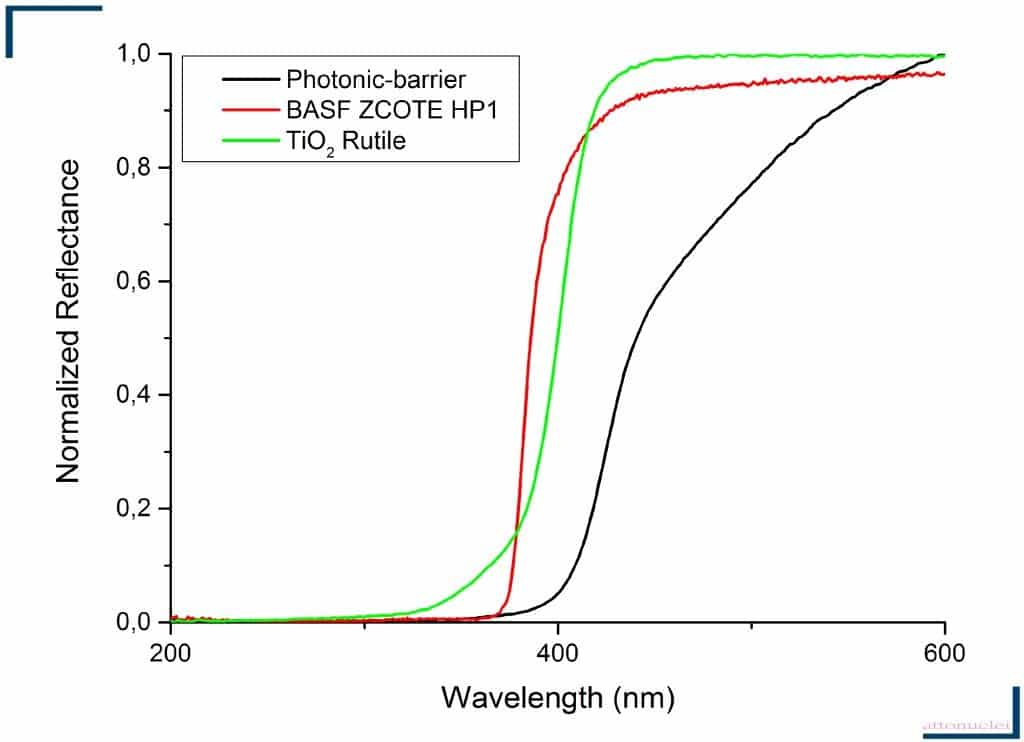
For this industrial product, we have filed a patent.
QUANTUM DOTS BASED MEDICAL DEVICES
ATTONUCLEI designes and synthesizes Quantum Dots and colloids with special properties for medical devices, such as the one developed for the SUccESS consortium.
Anti-inflammatory Quantum Dots : ATTONUCLEI has developed bandgap engineered semiconductor Quantum Dots, functionalized with linear polymers, with highly efficient anti-inflammatory Quantum Dots’ properties thanks to their ability to neutralize impaired electrons called free radicals. Moreover, the advantage of using functionnalized Quantum Dots in a vectorized hydrogel, rather than a conventional antioxidant having an anti-inflammatory action, is to avoid its release into the systemic circulation.
The antioxidant activity was evaluated using a standard test (reduction of ABTS) and ATTONUCLEI compared with 2 alginate dressings used in skin wound healing process (Nu-Gel® and Flaminal®).
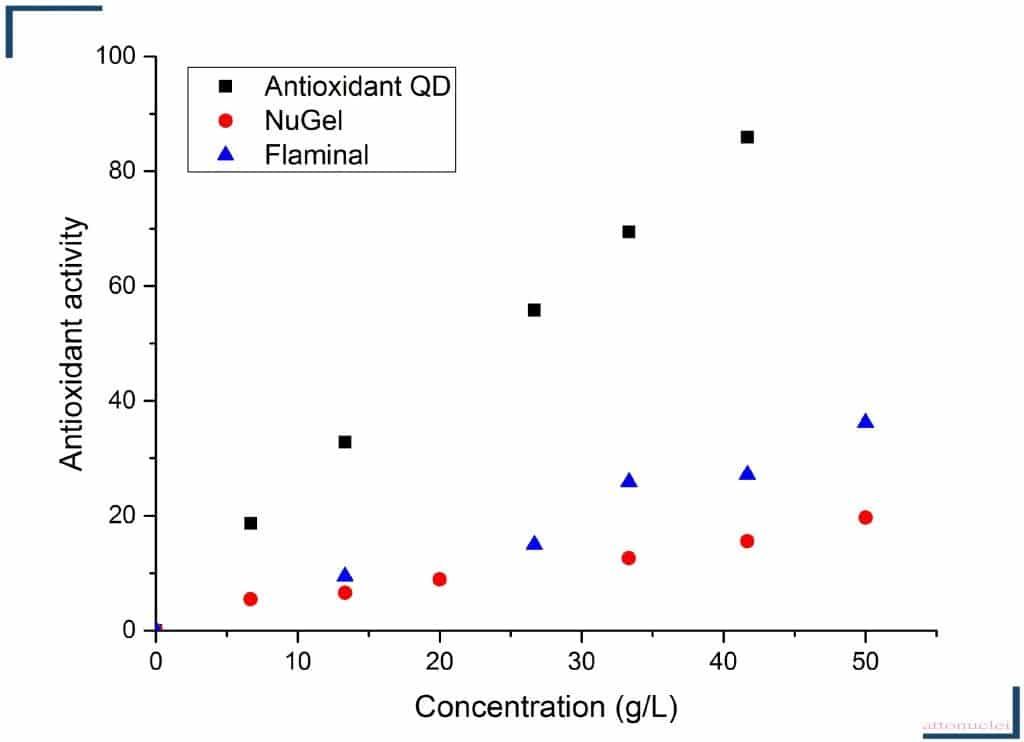
For this industrial product, we have filed a patent.
Our colloids have the advantage of being pH sensitive: they change color when the vectorized hydrogel is contaminated with bacteria, causing an increase of pH value.
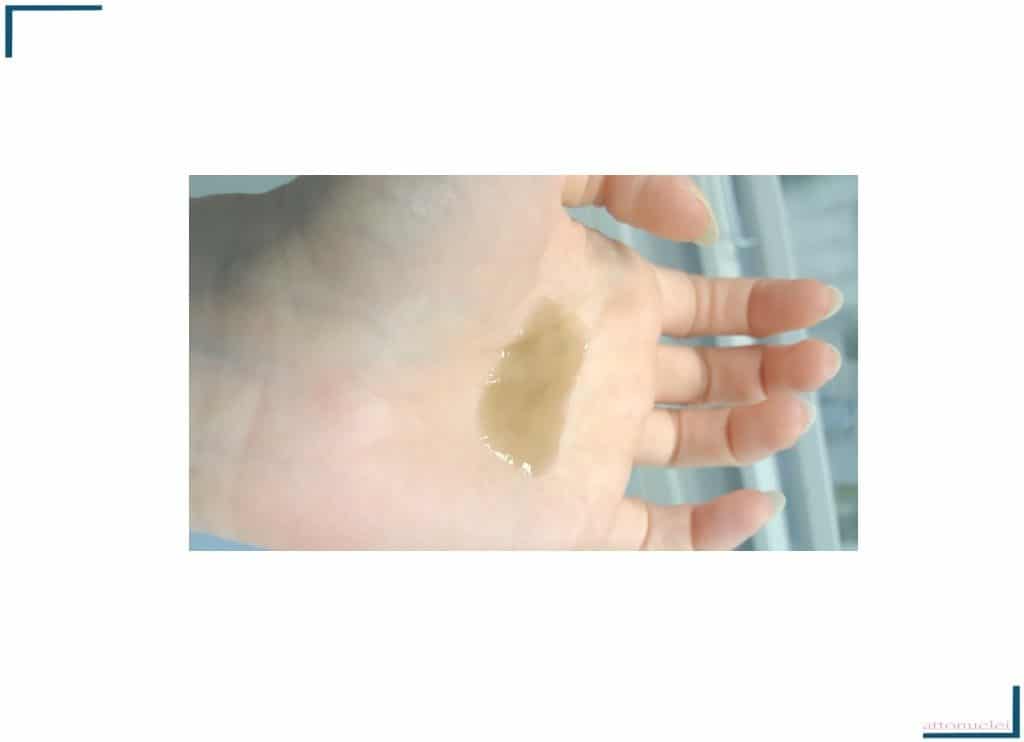
For this industrial product, we have filed a patent.